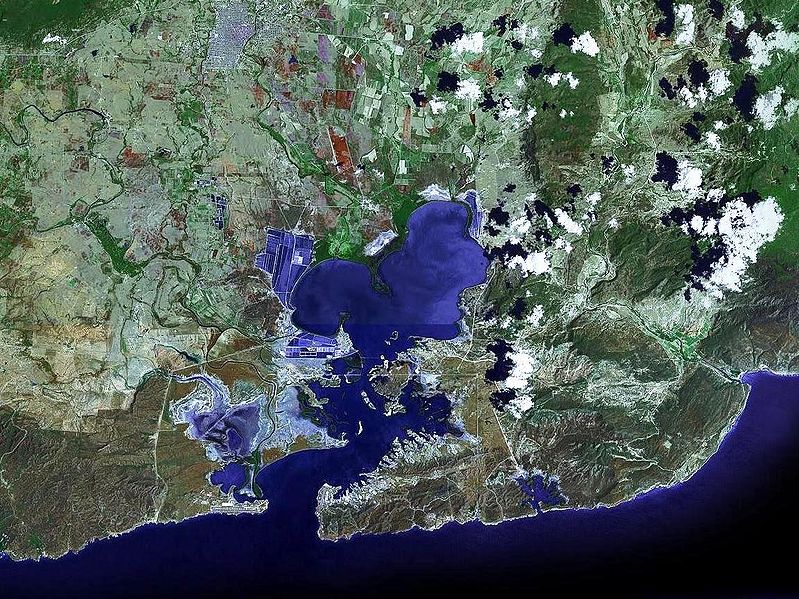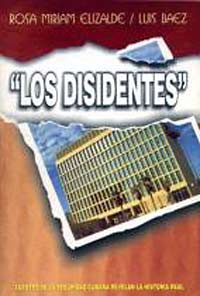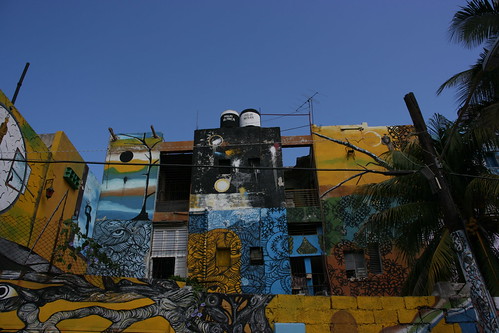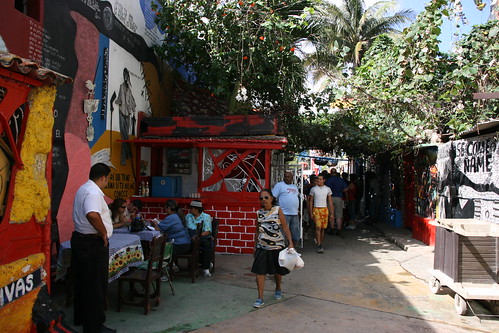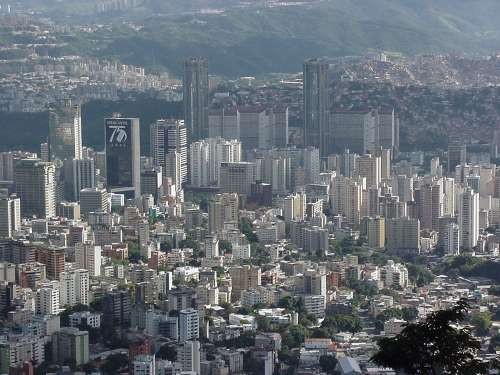 Here is a "mash-up" of recent news stories related to the suddenly controvertial issue of ethanol.(CNNMoney.com)
Here is a "mash-up" of recent news stories related to the suddenly controvertial issue of ethanol.(CNNMoney.com) All of a sudden, everybody hates ethanol.
Among the criticisms: Ethanol takes more energy to produce than it yields ... it can't be easily shipped ... it's driving up the price of food ... it's perverse to put food in fuel tanks while people starve.
What is the reason for this "sudden" switch of attitudes, that I admit I am also guilty of? There were always sceptics but they were being ignored until the article by Fidel Castro last week. He had another go on the same topic in Granma today, written after watching the press conference of Lula's privledged trip to Camp David - and reading Lula's editorial in the Washington Post.
In the WP piece Lula goes out of his way to address some of the concerns of Fidel's first piece (which was not about Brazil's ethahol technology/policy at all):
Lula says Brazil has ample empty land to grow food, that Brazil's process is clecan and efficient and that small farmers and producers will benefit. But he continued his public jabs at the hypritical US tarrif on Brazillian ethanol. He also echoes Fidel's central concern:"After all, the subsidies provided under America's corn-based ethanol program have spurred an increase in U.S. cereal prices of about 80 percent. This hurts meat and soy processors worldwide and threatens global food security."
Fidel replied:"It is not my intention to harm Brazil, nor get mixed up in affairs related to the internal politics of that great country,"
...
(But) "Nobody at Camp David responded to the main question. Where and who is going to supply the more than 500 million tons of corn and other cereals that the United States, Europe and the rich countries need to produce the volume of gallons of ethanol that the big U.S. companies and those of other countries are demanding as compensation for their sizeable investments?
Indeed who and how will this affect prices on basic grains that much of the poorest world depends on for survival? Grains that are also at risk because of water shortages. It is fine for Brazil to develop its own industry because of its unique conditions, but that does not mean the US can just jump on the bandwagon. Lula is correct that Brazil is able to be self-sufficient, but the US clearly is not. I lost the link to a story where even the most bullish of US corn-ethanol experts said "corn-based ethanol has upward limits of around 15-billion gallons of (domestic) production per year." President Bush wants to mandate use of 35-billion gallons of renewable fuels by 2017.
Right-wingers are also no fan of the Bush approach, because it relies on massive subsidies: And youre actually paying more for less performance. Its difficult, (Heritage Foundation's Ben) Lieberman notes, to transport ethanol from its Midwestern home base to far-off markets, and that adds to the price you pay at the pump. Ethanol cant be sent in an energy-efficient way through pipelines like gasoline can, because it would be contaminated by moisture along the way. Ethanol must be shipped instead by trucks, barges and railroads.
Ethanol lowers fuel economy -- according to the Department of Energy, a gallon of ethanol contains only two-thirds the energy content of a gallon of gasoline. (Corn-based ethanol, the kind being produced in the United States, is eight times less efficient than Brazil's sugarcane version of the biofuel).
...
In the end, Lieberman concludes, ethanol may wind up putting about as much carbon dioxide into the air as it takes out. So, from an environmental perspective, well be paying more to more or less maintain the status quo.
Peruvian conservative writer Alvaro Vargas Llosa also attacked Bush's plan as inefficient, given the tarrif - and ineffective at the important second goal, which is isolating Chavez and Castro from Lula and Central America. The best overall article of the bunch was this one from OneWorld.
The best overall article of the bunch was this one from OneWorld.NEW YORK, Apr 3 (OneWorld) - The Bush administration's plans to increase biofuel imports could add to the suffering of millions of impoverished peasants in Brazil and other developing countries, food rights and environmental groups say.
ActionAid, like many other groups, fears that the growing U.S. demand for ethanol fuel could force agribusiness in Brazil to indulge in unhealthy competition for profits that might end up causing monopolies over farmlands and damage to the environment.
...
Emphasizing that local ownership and sustainable agriculture must be considered as "crucial" elements of the United States' biofuel policy, Hansen-Kuhn described Bush's approach as a "headlong rush."
Some researchers claim as well that investments in ethanol to fuel automobiles are driving price hikes in food products around the world.
...
This unprecedented diversion of the world's leading grain crop to the production of fuel will affect food prices every year, according to EPI. As the world corn price rises, so too do those of rice and wheat as consumers substitute one for the other and the crops compete for land.
The U.S. corn crop accounts for about 40 percent of the global harvest and 70 percent of the world's corn exports. On average, every year, the United States exports 55 million tons of corn, which is fully 25 percent of the world's total grain exports.
"Substantially reducing this grain export flow would send shock waves throughout the world economy," says EPI's Lester Brown in a recent article on the impact of the demand for grain to fuel automobiles.
Describing the automotive demand for fuel as "insatiable," Brown estimates that the same amount of grain needed to fill a 25-gallon tank with ethanol one time can feed one person for a whole year.
"The competition for grain between the world's 800 million motorists who want to maintain their mobility and its 2 billion poorest people who are simply trying to survive is emerging as an epic issue," he says, in reflecting that soaring food prices could lead to urban food riots in many countries.
...
"The world desperately needs a strategy to deal with the emerging food-fuel battle," says Brown. "We need to make sure that In trying to solve one problem -- our dependence on imported oil -- we do not create a far more serious one."
Labels: ethanol fidel castro cuba brazil biofuel bush



 Students yell slogans during a protest against anti-Castro Cuban exile Luis Posada Carriles' release from jail, in Havana April 19, 2007.
Students yell slogans during a protest against anti-Castro Cuban exile Luis Posada Carriles' release from jail, in Havana April 19, 2007. 
